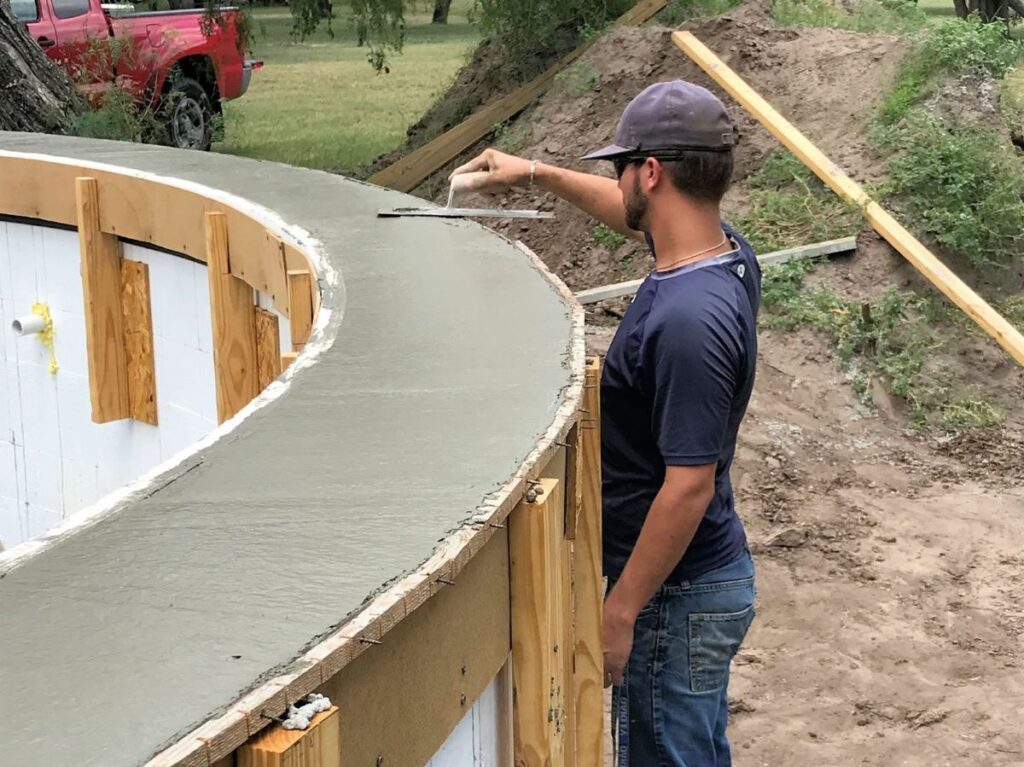Understanding Redfern’s Growth and the Role of a Buyers Advocate
Redfern has gone from being an overlooked inner-city suburb to one of Sydney’s most exciting property markets. Located just 3 kilometers south of Sydney’s CBD, it offers great connectivity while still keeping its unique cultural vibe that appeals to a wide range of buyers.
The Current State of the Redfern Property Market
In 2024, the buyers advocate Redfern property market has seen significant growth, with median house prices increasing by about 16% and unit prices rising by 12.2%. These numbers place Redfern among Sydney’s top-performing suburbs, showing that buyers are still interested and confident in the area’s long-term potential.
Why Understanding Redfern’s Growth Matters
Knowing about the Redfern growth trajectory is important because it directly affects how much you can afford to spend and how much return you can expect on your investment. If you’re looking to buy in this market without a good understanding of it, you might end up paying too much for properties or missing out on opportunities in areas that are likely to appreciate more. It’s also worth noting that what worked in the past may not necessarily work today due to the rapid changes happening in the suburb.
How a Buyers Advocate Can Help You
A Redfern Buyers Advocate can be your secret weapon in this competitive market. They have:
- Knowledge of the Market: They know which streets and types of properties are likely to give you the best returns.
- Negotiation Skills: They can help you secure properties that are in high demand but have limited supply.
- Understanding of Future Trends: They can analyze infrastructure projects and gentrification patterns to predict where value will be created.
- Access to Off-Market Deals: They have connections that allow them to find opportunities before they are publicly listed.
The role of a Buyers Advocate becomes especially important when dealing with Redfern’s complex market dynamics. They can help you understand how different factors like urban renewal projects, demographic changes, and transport improvements come together to create value. This ensures that your purchase aligns with both current conditions and future growth drivers.
What Factors Are Driving Redfern’s Property Market Growth?
Redfern’s property market surge stems from three interconnected forces: strategic infrastructure positioning, comprehensive urban transformation, and evolving population dynamics. These factors create a compelling case for sustained value appreciation.
Strategic Infrastructure Advantages
Redfern Station serves as a critical transport hub connecting residents to Sydney CBD in under five minutes. This infrastructure impact extends beyond rail connectivity:
- Multiple bus routes linking to surrounding suburbs and employment centers
- Cycling infrastructure improvements encouraging active transport
- Proximity to major arterial roads providing vehicle access across Greater Sydney
- Walking distance to Central Station for interstate and regional travel
Educational facilities amplify the suburb’s appeal. Families prioritize access to quality schools, with Redfern offering both public and private options within the immediate area. The University of Sydney and University of Technology Sydney sit nearby, attracting students and academic professionals who value short commutes.
Urban Renewal Transforming Liveability
Large-scale redevelopment projects have reshaped Redfern’s physical landscape and social fabric. The Redfern-Waterloo Authority’s initiatives introduced mixed-use developments combining residential, commercial, and community spaces. These projects replaced aging industrial sites with contemporary buildings designed for modern urban living.
Recreational facilities now dot the suburb, addressing previous gaps in public amenity:
- Redfern Park’s upgraded sporting fields and community facilities
- New playgrounds and green spaces integrated into residential developments
- Cultural venues celebrating the suburb’s Indigenous heritage
- Cafes, restaurants, and retail precincts creating vibrant street life
These improvements directly influence property desirability. Buyers seeking lifestyle amenities alongside investment potential find Redfern increasingly attractive compared to suburbs lacking similar renewal programs.
Demographic Shifts Redfern Experiences
Demographic shifts Redfern has witnessed reflect broader urban migration patterns. Young professionals, creative industries workers, and downsizers now comprise significant portions of the resident base. This diversity creates sustained demand across different property types and price points.
The suburb’s cultural significance attracts residents valuing community character and historical depth. Indigenous heritage sites and contemporary Aboriginal-led businesses contribute to Redfern’s unique identity, distinguishing it from generic inner-city developments.
How Does Sydney’s Overall Real Estate Landscape Affect Redfern?
Sydney’s property market operates as an interconnected ecosystem where citywide trends directly shape opportunities in suburbs like Redfern. When the broader market experiences price surges and supply constraints, inner-city locations become pressure points where demand concentrates most intensely.
1. Sustained Pressure on Sydney’s Real Estate Market
Sydney real estate trends 2024 reveal a market under sustained pressure from multiple directions. Property prices across the metropolitan area have climbed steadily as buyers compete for limited available stock. The supply-demand imbalance creates a ripple effect that pushes buyers to explore suburbs offering both accessibility and value—positioning Redfern as a prime beneficiary of this search pattern.
2. Population Growth Impacting Inner Suburbs
The numbers behind population growth Sydney tell a compelling story for inner suburbs. Sydney’s population is projected to swell by more than 650,000 residents by 2034, representing roughly the equivalent of adding a city the size of Canberra to the existing metropolitan footprint. This demographic expansion doesn’t distribute evenly across the city; instead, it concentrates in areas with established infrastructure and employment connectivity.
3. Redfern’s Strategic Location
Redfern sits at the intersection of these growth pressures. Located just 3 kilometers from the CBD, the suburb absorbs demand from buyers and renters who need proximity to Sydney’s employment hubs but face pricing barriers in the city center. As outer suburbs stretch further from core infrastructure, inner-ring locations like Redfern become increasingly valuable for their time-saving advantages and lifestyle amenities.
4. Rental Market Dynamics
Housing demand Sydney manifests most visibly in the rental market, where vacancy rates hover below 2% across much of the metropolitan area. This tight rental environment creates dual pressures:
- Renters face limited choices and rising costs, pushing more households toward purchasing decisions
- Investors recognize strong rental yields and capital growth potential in well-located suburbs
- First-home buyers compete against investors for the same limited property pool
The rental squeeze particularly benefits Redfern’s investment appeal. Properties in the suburb attract consistent tenant demand from young professionals, students attending nearby universities, and creative industry workers drawn to the area’s cultural character. This tenant profile typically maintains stable occupancy rates and accepts market-rate increases, providing investors with reliable income streams alongside capital appreciation.
5. Affordability Challenges Redirecting Buyers
Sydney’s affordability challenges also redirect buyer attention toward Redfern. While premium harbor suburbs
Why Is Redfern Considered One of Sydney’s Top Growth Suburbs?
Redfern’s property market delivered exceptional returns in 2024, with median house prices in the area growing by approximately 16% and a 12.2% increase in unit prices. These figures position Redfern among the top growth suburbs in Sydney, outperforming many established areas across the city.
The 16% increase in house prices means significant gains for property owners. A median-priced house valued at $1.5 million at the beginning of 2024 would have increased in value by $240,000 within one year. Similarly, unit owners also benefited, with a typical $800,000 apartment gaining nearly $98,000 in value during the same period.
How Does Redfern’s Performance Compare to Other Sydney Suburbs?
Redfern’s growth rates are significantly higher than the average for metropolitan Sydney. While many established suburbs experienced single-digit growth or stagnation, Redfern showed double-digit appreciation for both types of properties. Competitors in the inner-west such as Newtown and Erskineville recorded more modest gains of 8-10%, highlighting Redfern’s standout trajectory.

The performance of the unit market in Redfern sets it apart from surrounding areas. Many suburbs in Sydney saw unit prices remain flat or decline slightly due to concerns about oversupply. However, Redfern’s 12.2% growth in unit prices reflects genuine demand rather than speculative development, indicating confidence in the area’s transformation. You my visit https://billalleninspections.com/the-benefits-of-an-exclusive-burwood-buyers-agency/ to learn about to learn about the benefits of an exclusive burwood buyers agency
What Makes Redfern Attractive to Buyers and Investors?
Understanding Redfern’s Growth Trajectory with a Buyers Advocate reveals several compelling reasons behind this demand:
- Location advantage: Positioned just 3 kilometers from Sydney’s CBD with multiple transport options including direct rail access from Redfern Station
- Cultural revival: The suburb is undergoing a transformation that combines its historical charm with modern urban living, appealing to young professionals and creative industries
- Ongoing development: Urban renewal projects are improving streetscapes and amenities without disrupting the existing community
- Affordability compared to neighboring suburbs: Entry prices in Redfern are still lower than Surry Hills or Paddington while offering similar lifestyle benefits
The changing demographics towards higher-income households create sustained demand for housing in the area.
What Role Does a Buyers Advocate Play in the Redfern Market?
A buyers advocate is like a strategic partner who helps you find properties that are likely to increase in value before they become widely available. These professionals study the different areas within Redfern, looking for undervalued properties near planned infrastructure improvements or in neighborhoods that are starting to gentrify. They have access to exclusive opportunities and listings that aren’t yet on the market, giving their clients an advantage in a suburb where sought-after properties often sell quickly.
Spotting Properties with Strong Growth Potential
Buyers advocates in Redfern assess properties through multiple lenses that typical buyers might overlook. They evaluate proximity to upcoming transport improvements, analyze rental yield trends in specific streets, and identify buildings with strong owner-occupier ratios that indicate long-term value stability. A buyers advocate examines council development applications to pinpoint areas where new amenities will boost property values, such as the ongoing upgrades to Prince Alfred Park or improvements to Redfern Station precinct.
Their local network provides intelligence on which apartment buildings have well-managed strata schemes and which heritage conversions maintain their character while offering modern functionality. This detailed knowledge helps buyers avoid properties with hidden issues like structural concerns or unfavorable body corporate dynamics that could hinder future resale value.
Navigating Competitive Market Conditions Through Expert Negotiation
When there are many buyers competing for a limited number of properties in Redfern, negotiation strategies become crucial. A buyers advocate has expertise in auctions and private treaty negotiations, which can make a significant difference in securing a property. They understand what motivates sellers, accurately interpret sales data of similar properties, and structure offers that appeal to sellers while still protecting the interests of the buyer.
During auctions, advocates pay attention to bidding patterns and know when to strategically enter the contest instead of driving up prices too early. For off-market deals, they negotiate directly with selling agents using established relationships and credibility in the market. Their experience in handling conditional offers, building and pest inspection clauses, and settlement terms ensures that buyers don’t end up paying more than necessary due to competition.
Providing Intelligence on Infrastructure and Gentrification Trends
Buyers advocates in Redfern also offer valuable insights into future market trends that individual buyers may find difficult to access. They keep track of government spending on infrastructure projects, monitor applications for rezoning, and identify streets that are transitioning from industrial use to residential use. Understanding how these factors impact property values is essential for making informed investment decisions.
By staying updated on such developments, buyers advocates can guide their clients towards areas with high potential for growth. This information can be particularly beneficial when deciding where to invest or which properties to target.
In summary, a buyers advocate plays a crucial role in helping individuals navigate the competitive Redfern property market. Through their expertise in identifying growth potential, negotiating effectively, and analyzing market trends, they provide valuable support throughout the buying process.
Which Property Types Are Favored in Redfern’s Current Market?
Modern townhouses in Redfern and boutique apartments investment opportunities are the most popular choices for buyers in the suburb. These types of properties consistently attract both homeowners and investors because of their modern design, low-maintenance appeal, and compatibility with the urban character of the area.
Why Modern Townhouses Are Highly Desirable
Modern townhouses have become highly sought-after assets in Redfern’s property market. These properties usually have:
- Three to four bedrooms with open-plan living areas
- Private courtyards or rooftop terraces
- High-quality finishes and energy-efficient designs
- Secure parking and storage solutions
The appeal goes beyond looks. Townhouses provide families and professionals with the space and privacy they want while still offering the convenience of living in the city. Properties built within the last ten years near Redfern Station or along the suburb’s revitalized streets command significant premiums, with some selling for 20-25% more than older properties.
The Growing Popularity of Boutique Apartment Developments
Boutique apartments are another popular type of property, especially among investors and first-time homebuyers. These developments, usually consisting of fewer than 30 units, offer:
- Unique architectural style not found in larger complexes
- Superior construction quality and attention to detail
- Lower strata fees compared to high-rise buildings
- Strong rental yields averaging 4-5% per year
Apartments in converted heritage buildings or purpose-built boutique complexes along Eveleigh Street and nearby areas have shown impressive capital growth. The limited supply of high-quality boutique apartments leads to consistent demand, with vacancy rates rarely exceeding 1-2%.
Support from Urban Renewal Initiatives
The types of properties in Redfern reflect the suburb’s transformation from an industrial area to a lively residential center. Urban renewal projects have focused on mixed-use developments that combine residential, commercial, and community spaces. Modern townhouses and boutique apartments align perfectly with this vision by enhancing the streetscape and activating the neighborhood.
The planning frameworks set by the Redfern-Waterloo Authority promote medium-density housing that respects the area’s heritage while introducing contemporary living options. Developers who follow these guidelines create properties that strike a balance between historical significance and modern design.
How Can Buyers Advocates Help Capitalize on Future Opportunities in Redfern?
Buyers advocates use their knowledge of the market to find areas in Redfern that are showing signs of change before prices go up. They keep an eye on council development applications, infrastructure plans, and rezoning proposals to see where urban renewal opportunities will happen next. To buy property strategically in Redfern, it’s important to know which streets or blocks are close to planned improvements like new parks, commercial areas, or transportation upgrades. This knowledge will help buyers take advantage of the development’s impact.
Where Are the Next Growth Areas in Redfern?
The southern parts of Redfern near Waterloo are still attracting interest from developers as the Metro station project changes how people get around. Advocates closely monitor these changes and look for properties within walking distance of future infrastructure development that haven’t seen price increases yet. Streets that are slowly gentrifying—indicated by new cafes, renovated buildings, and younger residents—often experience a broader market recognition 12-18 months later.
Properties that back onto areas designated for public space improvements or heritage precinct enhancements present specific opportunities. By working with a Redfern Buyers Advocate who understands the area’s growth trajectory, you can gain insights into which heritage buildings will be converted into residential spaces and where industrial sites will be transformed into mixed-use developments.
When Should Buyers Enter the Market for Maximum Returns?
To achieve the best capital gains, it’s important to time your purchases based on when infrastructure projects are completed rather than when they are announced. Advocates study the construction schedules of projects like the Sydney Metro extensions and advise clients to buy properties 6-12 months before they are finished. This is when prices usually go up. By doing this, buyers can benefit from the growth that comes from people’s anticipation without having to pay extra once the amenities are fully operational.
Market trends in Redfern don’t always match what happens in other parts of Sydney. Local advocates can identify specific seasonal patterns in the suburb—such as more activity from downsizers in autumn or increased interest from investors after rental yield reports come out. They also know when temporary softness in the market creates opportunities for entry and can tell the difference between genuine corrections and short-term fluctuations caused by settlement clusters or auction scheduling.
What Local Knowledge Gives Buyers an Advantage?
Advocates build relationships with local agents, developers, and council planners so they can get advance notice about off-market opportunities and upcoming releases
Why Should You Partner with a Buyers Advocate in Redfern’s Evolving Market?
Understanding the growth of Redfern requires more than just looking at price trends and reading market reports. A Buyers Advocate in Redfern has specialized knowledge that turns raw data into practical strategies, helping you find properties that fit both the current market situation and future development patterns. This expertise becomes especially valuable when dealing with a suburb experiencing 16% house price growth while having limited inventory and intense competition.
The Importance of Buyers Advocates
The importance of Buyers Advocates goes beyond simple property searches. These professionals are able to interpret complex market signals that casual buyers might overlook. This includes subtle changes in demographic preferences and early signs of infrastructure investment. They have the knowledge to identify which streets are likely to undergo gentrification, which types of properties will see the most increase in value, and when market conditions favor quick action versus waiting patiently.
Making Informed Property Decisions
Making informed property decisions in Redfern requires insights that can only be gained through constant immersion in the market. Buyers Advocates build relationships with local agents, keep track of off-market opportunities, and understand the subtle differences between properties that may look similar on paper but have very different investment potential. This deep understanding is crucial when every decision you make about purchasing a property has significant financial consequences.

Understanding Redfern’s Growth Trajectory
Working with a Buyers Advocate in Redfern can help you understand the area’s growth trajectory better. This knowledge positions you to take advantage of opportunities that others might miss. Redfern is undergoing a transformation from its industrial past to becoming a desirable residential area, creating chances for buyers who can recognize value before the wider market catches up.
The Role of Buyers Advocates
The complexity of Redfern’s evolving market makes it essential to have expert guidance. Buyers Advocates act as your strategic partner, combining their knowledge of the market with negotiation skills to secure properties that provide immediate satisfaction and long-term value. Their involvement can make a difference between simply buying in a growing suburb and truly benefiting from its upward trend.























